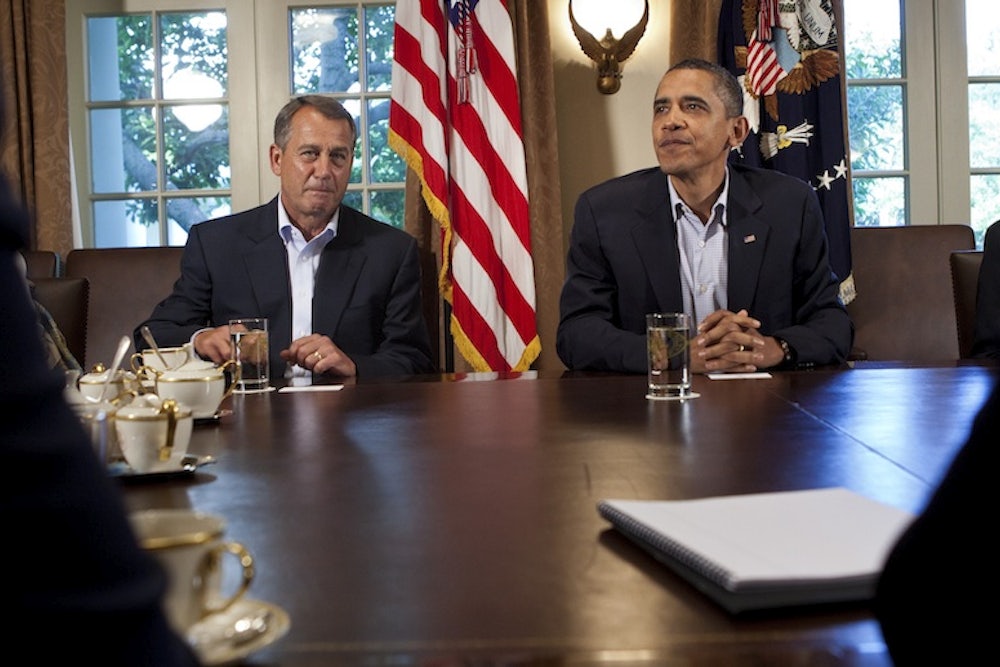On Wednesday, Todd Purdum published a piece introducing readers to Politico’s newest series: “Lessons from Leaders.” The idea seems fair enough, but Purdum makes the same fatal mistake that most writers make when writing about leadership in Washington: He posits that legislative gridlock is a consequence of inept leaders, instead of structural incentives that naturally lead to this outcome.
But beyond its flawed thesis, the piece—“D.C. has leaders—but can any really lead?”—is a great example of how not to write about leadership. Here are four notable flaws:
1. It equates social media followers to voters.
Purdum opens the article by citing Ted Cruz’s 350,000 Twitter followers, Rand Paul’s 1.8 million Facebook likes and Barack Obama’s 66 million votes in the 2012 presidential election. Besides the fact that a social media tally is a terrible measure of leadership—both Katy Perry and Justin Bieber have more Twitter followers than Obama—winning the presidency is much harder than amassing Twitter followers. Obviously.
2. It treats John Boehner as a sage on leadership.
More than most people, I think the speaker has done a pretty good job leading his members during the Obama presidency. But let’s not get carried away. Purdum quotes Boehner from an appearance on the “Tonight Show” last January: "A leader without followers is simply a man taking a walk.” It's a creative epigram, but it doesn’t actually say anything interesting about leadership.
3. It quotes the dictionary.
The third paragraph begins by quoting the dictionary—one of the oldest journalistic clichés, which should be avoided at all costs. "The simplest dictionary definition of leader," Purdum writes, "is 'a person who commands a group,' and accepted synonyms include punchy, pungent nouns like 'chief,' 'commander,' 'captain,' 'headman' and 'skipper.'" This is helpful only if you're the rare reader who doesn't know what a leader is, but is familiar with the term "headman."
4. It romanticizes leaders of yore.
Purdum's pice joins a long list of articles—including a few in The New Republic, no doubt—comparing Obama’s leadership skills to LBJ’s. If LBJ were president, the argument goes, he would’ve pushed through immigration reform and crafted a grand bargain on entitlements and taxes. Obama just needs to Lead. (For the best example of this, peruse Ron Fournier’s work.) Boehner and Senate Minority Leader Mitch McConnell, the same argument goes, could enact major new policies if they would just Lead, too. As Purdum writes, “Everyone knows what needs to be done, it seems, but nobody can manage to do it."
If you asked McConnell “what needs to be done,” his honest answer would be winning the Senate in November, not passing big pieces of legislation. Before 2012, it was making sure Obama didn’t win reelection. In fact, McConnell even explicitly admitted that. And the best way to make that happen? Create gridlock and limit Obama’s legislative achievements.
I’m sympathetic to what Politico is doing here. “In this periodic series — in live conversations, video interviews and articles,” Purdum explains, “POLITICO will examine the state of leadership in public life, sources and strategies for leadership from inside Washington and out, and the implications for the future.” There’s no way these conversations can make Congress more dysfunctional.
But the problem with Washington is not that the top politicians in the Democratic and Republican parties don’t have the tools or insight needed to lead. It’s that the incentive structure of politics has naturally led to gridlock. McConnell correctly reasoned that the easiest way to win the next election was to deny the president any legislative success. In turn, he has bogged down the Senate with filibuster after filibuster. In the House, Boehner has done the same with Obama's agenda. Ultimately, that's a rational political strategy. No social media sites or Politico conferences will change that.
